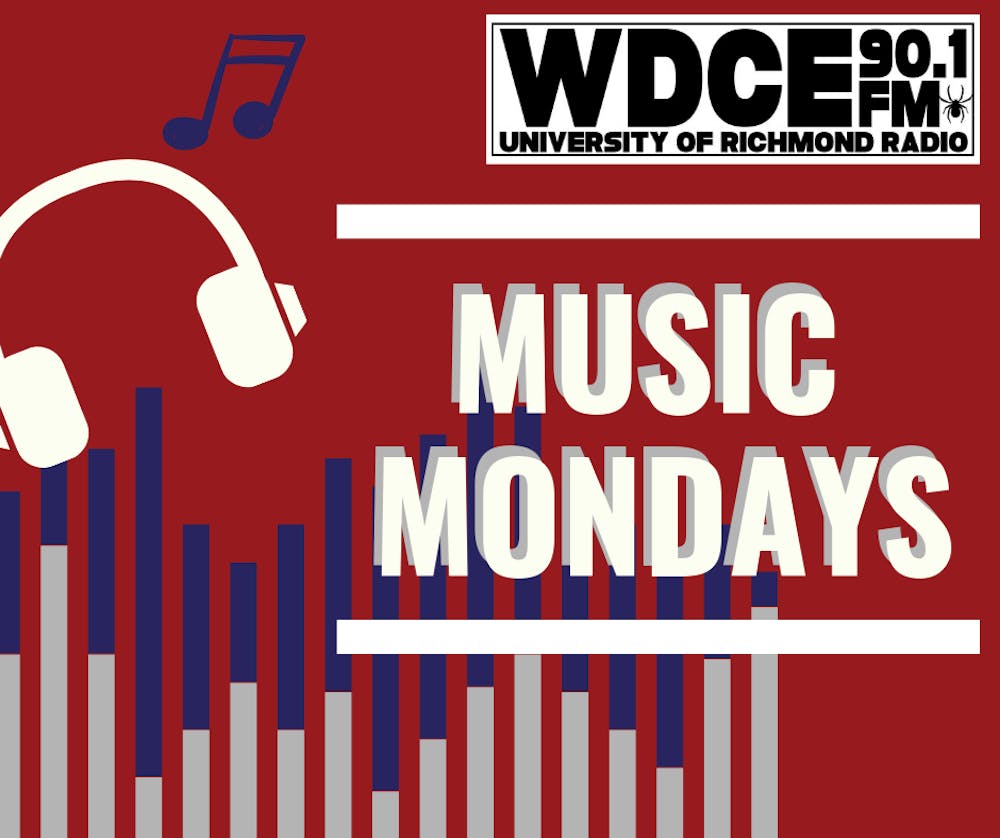Editor's Note: The views and opinions expressed in this article do not reflect those of The Collegian.
Last week, Nathan Burns offered up Frank Ocean’s “Endless” as the most underrated, or at least overlooked, album of 2016 for this continuing series that attempts to highlight the best music from 2016. “Endless” was largely overlooked because of how it was distributed — it is still not available on Spotify or many other streaming services. It was released days before “Blonde,” which is considered by many to be Ocean’s magnum opus and among the greatest works of the last decade.
When deciding what to highlight for this same prompt, I had a lot of options outside the pop world to choose from.
Japanese Breakfast’s “Psychopomp” and Touché Amoré’s “Stage Four” are two of the best albums about grief, loss and cancer I’ve ever heard, and they sit at opposite ends of the sonic spectrum. (The former is a dream-pop masterpiece and the latter the most well-produced screamo record I’ve ever heard).
There was a lot of great indie rock and emo I loved from 2016, which was also a notable part of my last high school year. I went through a break-up with The Hotelier’s “Goodness”, which is high on the list of my favorite albums ever, and one that I’ve written about extensively, although it is hard to recommend.
One of my favorite bands, Cymbals Eat Guitars, released its last ever album, “Pretty Years,” in 2016 before breaking up. Its former lead singer Joseph D’Agostino just released his first solo LP as Empty Country a couple weeks ago, an album that’s one of my favorite rock records of 2020.
But I’d rather focus on The Range’s “Potential,” the most human electronic album you’ll ever come across, and that humanity is by design.
“Right now I don’t have a backup plan for if I don’t make it / But even if— / I’ll just decide to move on.” That line, earnestly relayed by an unnamed British teen, opens the first song “Regular,” and thrusts you into the conceit behind The Range as a musical project.
Under the name The Range, electronic musician James Hinton dives into YouTube for his samples, aiming to find people singing or rapping — or just talking to a camera in their bedrooms — as in “Regular.” He doesn’t want anything with lots of views already. “You can tell when someone’s completely given into the thing,” Hinton said in a 2016 interview with Pitchfork.
It is standard in electronic music, or hip hop and pop, for an artist to find samples from old disco records, jazz standards and even talk radio recordings and break them apart or re-apply to the song they are working on. It’s usually a way of recontextualizing a piece of music, or just finding a great beat to build off of, but Hinton approaches this practice differently from almost anyone.
In a way, he’s giving the young people he finds on YouTube the audience that they’re wishing for. He makes them the stars of songs with a few million plays on Spotify, and, as he explains in that Pitchfork interview, gives them royalties for their work.
Inspired by the hope and hunger of YouTube wannabe-stars, Hinton crafts beautiful, textured and complex songs around their work. In “Regular,” we don’t hear what the voice will do other than “move on” until near the end of the song. Hinton leaves us hanging on to those words, accompanied by building house beats, glimmering and unintelligible vocal snippets, and a bassy synth that rises and falls with the young man’s aspirations.
Enjoy what you're reading?
Signup for our newsletter
With a minute left, we finally hear what Hinton has withheld: “I’ll just decide to move on / to something bigger and better / Write down all the places where you can catch me.” He’s not despairing if this time doesn’t work. He’s not making lateral moves. Every failure is a stepping stone.
That track in particular touched me as a rising high school senior the summer of 2016, unsure about where I would go to college or what I would do there. There’s something really terrifying and poignant about an album titled “Potential” opening with a song called “Regular.” It’s hard not to feel regular and unextraordinary when you’re surrounded by competitive and capable peers, and those same sentiments live in me now as a rising college senior looking toward the uncertain job market.
The rest of the record dives into these themes and more even further, matched in emotional heft always by the beauty of Hinton’s backing instrumentals. “Copper Wire” wonders what happens “without you,” “1804” prays for “1,000 blessings,” and “Superimpose” is the closest Hinton gets to a proper love song. But nothing is certain in any of these tracks. They’re always aspirations, hopes, dreams, prayers, and it bears keeping in mind that they’re composed of people desperately seeking an audience by doing what they love.
The Range combines M83’s grandeur with the detail and beat-making capability of artists like DJ Koze. “Potential” received favorable reviews at the time, too, but it didn’t hold that esteem when it came time to write the various Best Albums of the 2010s lists. For me, it remains one of the most impactful and emotionally resonant records of the last 10 years.
Contact opinions and columns editor Conner Evans at conner.evans@richmond.edu.
Support independent student media
You can make a tax-deductible donation by clicking the button below, which takes you to our secure PayPal account. The page is set up to receive contributions in whatever amount you designate. We look forward to using the money we raise to further our mission of providing honest and accurate information to students, faculty, staff, alumni and others in the general public.
Donate Now


